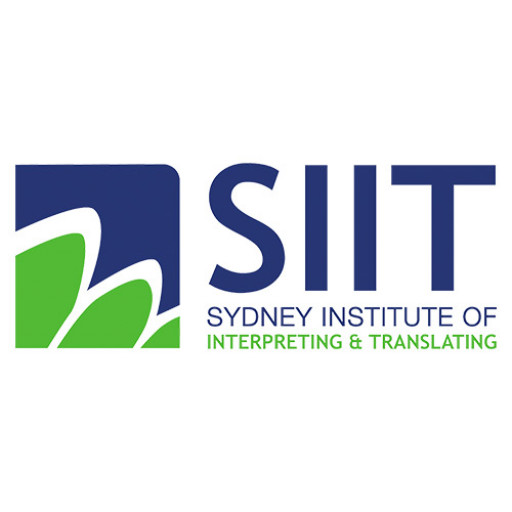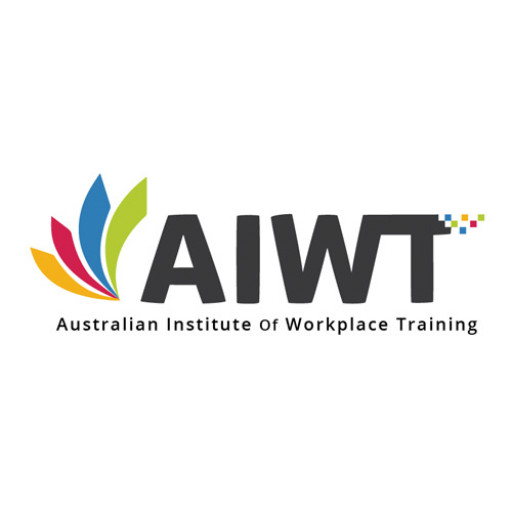This certificate covers the competencies needed to interpret by a source language into a target language, generally dialog and monologue settings where the interpreter is able to physically restrain the discourse to assist retention and recall.In a general setting that the circumstance is usually wide and routine, this content or complexity of the situation can usually be predicted and planned for. There are an average of two or perhaps a few participants, to whom the interpreter includes physical and visual access.The Diploma of Interpreting prepares interpreters for work typically from the area and business domains, including industries like general health, welfare and public services, educational and societal contexts, along with tourism. In addition to interactions like initial police interviews, over the counter interviews in community and customer advice solutions, non-complex handicap assistance, along with other casual business and workplace interactions. The interpreting occurs where miscommunication or the consequences of errors in behavioural intention can be easily handled through consultation and preparation, and at which there are opportunities for error correction. No certification, legislative or certificate requirements affect this qualification at the time of publication.Additional qualification adviceWhere that a SITXLAN unit is taken in Group A, the consequent testamur must be included: Diploma of Interpreting (LOTE-English of plumped for SITXLAN unit) e.g. Diploma of Interpreting (Hindi-English).Where PSPTIS044 is preferred in Group A, the consequent testamur must be identified: Diploma of Interpreting (LOTE-English). Additionally, the following wording could be included: \u201cThis qualification was evaluated in (speech )\u201d.Where SITXLAN3128 is preferred in Group A, the resulting testamur must be identified: Diploma of Interpreting (Australian Indigenous languages-English). Additionally, the following wording could be inserted: \u201cThis qualification was assessed in (speech ). \u201d
The Interpreting (LOTE English) program at the Global Business College of Australia is designed to develop proficient bilingual professionals capable of bridging communication gaps in diverse settings. This comprehensive course provides students with the essential skills required for high-quality interpretation between their native language and English, preparing them for careers in various sectors such as government, healthcare, legal services, business, and community organizations. Throughout the program, students engage in intensive language training that emphasizes accurate and culturally appropriate translation, active listening, note-taking, and quick thinking under pressure. The curriculum incorporates both theoretical and practical components, enabling students to understand the ethics, protocols, and practical challenges faced by interpreters. Practical sessions include simulated interpreting scenarios, role plays, and real-world assignments that build confidence and competence. Additionally, the program covers specialized interpreting fields such as medical, legal, and conference interpreting, equipping students with sector-specific terminology and techniques. Emphasis is placed on developing excellent oral and written communication skills, cultural competence, and professional integrity. Students also learn about the legal and ethical responsibilities of interpreters, confidentiality issues, and how to manage complex communication dynamics. The program aims to produce graduates who are not only bilingual but also culturally sensitive and ethically responsible professionals ready to serve their communities and organizations effectively. Upon completion, graduates receive a qualification that opens doors to employment opportunities as interpreters, translators, or language services providers across various industries, contributing significantly to Australia's multicultural and multilingual society.
Program requirements for the Interpreting (LOTE English) diploma at the Global Business College of Australia include completing a series of coursework modules designed to develop both language proficiency and interpreting skills. Students must demonstrate a high level of competence in their native language as well as in English, ensuring they can accurately interpret spoken language across a variety of professional contexts. Entrance prerequisites typically involve proof of language proficiency and a demonstrated aptitude for interpretation, such as prior study or relevant work experience. The program emphasizes practical training through simulated interpreting exercises, which cover areas such as business, legal, medical, and community settings. Students are expected to complete assessments that may include written translations, oral interpreting tests, and practical interpretation scenarios to ensure they meet industry standards. To graduate, students usually need to achieve a minimum standard of competency across all modules, including language skills, cultural competency, professionalism, and ethical considerations in interpreting. Additionally, some courses may require internships or supervised interpreting practicum to provide real-world experience. The curriculum is designed to prepare graduates to work as professional interpreters in various sectors, ensuring their ability to facilitate effective communication in multicultural and multilingual environments. Throughout the program, students are encouraged to develop critical listening, quick thinking, cultural awareness, and emotional resilience, which are essential qualities for effective interpreting. Program completion equips students with both the technical skills and ethical understanding necessary for entry into the interpreting industry, making them valuable assets to agencies, government bodies, and private organizations seeking multilingual interpretation services.
Financing for the Interpreting (LOTE English) program at the Global Business College of Australia is structured to ensure accessibility and support for a diverse student body. The program offers various options to assist students in funding their education, including government subsidized places, fee support schemes, and payment plans. Domestic students may be eligible for Commonwealth supported places, which significantly reduce tuition fees, making higher education more affordable. Additionally, students can access VET Student Loans, a government initiative providing loan assistance for eligible students enrolled in Diploma-level vocational education and training courses, subject to assessment and eligibility criteria. For students requiring further financial assistance, the college provides flexible payment arrangements, allowing fee payments in installments to ease financial burden throughout the course duration. Other funding opportunities include scholarships and grants that the college periodically offers to outstanding students or those facing financial hardship, promoting equal access to vocational education. International students are responsible for the entire tuition fee, payable in advance or via agreed payment plans, with costs varying based on the specific course components and duration. The college also encourages students to explore external scholarship options, including government or private sector scholarships dedicated to supporting students in the field of interpreting and translation. Financial advice and counseling are available through the college’s support services to help students plan and manage their education-related expenses effectively. Overall, the college’s financing options aim to facilitate enrollment, reduce financial barriers, and support students throughout their studies, ensuring that capable individuals can pursue professional training in interpreting without undue financial hardship.
The Interpreting (LOTE English) program at the Global Business College of Australia is designed to equip students with the necessary skills and knowledge to become professional interpreters specializing in languages other than English. The program focuses on developing both linguistic proficiency and interpreting techniques to enable graduates to effectively facilitate communication between speakers of different languages in various settings, including business, legal, healthcare, and community services. Throughout the course, students engage in intensive language practice, gaining fluency and cultural understanding essential for accurate interpretation. The curriculum covers core interpreting skills such as sight translation, consecutive and simultaneous interpreting, note-taking methods, and ethical considerations relevant to the profession. Additionally, students learn about the specific terminologies related to legal, medical, and business contexts to increase their versatility as interpreters. The program is designed to be practical, emphasizing real-world scenarios through role-plays, simulated assignments, and practical placement opportunities, which prepare students for the demands of the interpreting industry. The college offers experienced instructors who are often native speakers or have extensive professional interpreting backgrounds, ensuring high-quality training and mentorship. Graduates of this program are well-positioned to find employment in a variety of sectors including government agencies, private companies, hospitals, courts, and community organizations. Recruitment opportunities may also include freelance interpreting work, enabling flexibility and independence in their careers. The program aligns with industry standards and aims to meet the increasing demand for skilled interpreters in multicultural and multilingual Australia. By completing this program, students gain a comprehensive understanding of the interpreting profession’s responsibilities, technical skills, and cultural sensitivities, preparing them for certification and entry into the professional interpreting field.





